Adil Najam
I am most pleasantly surprised that readers have so quickly figured out the mystery man in our latest ATP Quiz. Since they have, let me add a little more information and let the discussion continue.
I am not sure, however, how many readers know of Muhammad Asad or of his connection to Pakistan. Let me confess that until fairly recently I did not; at least not of the Pakistan connection. As I have gotten to know more about this connection, I have gotten more and more intrigued – all the more so because there is relatively little in his own writings or that of others about this.
But lets start from the beginning.

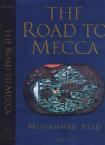 Asad was born in 1900 as Leopold Weiss to Jewish parents in Lvov (then part of the Habsburg Empire, now in Ukraine). He moved to Berlin in 1920 to become a journalist and traveled to Palestine in 1922. It was there that he first came into contact with Arabs and Muslims and began a long journey into Muslim lands and minds that eventually led to his embracing Islam in 1926. His bestselling autobiography Road to Mecca (published 1954) recounts these years in vivid and captivating detail., including his adventures in Arabia and in working with King Ibn Saud and the Grand Sanusi, amongst others.
Asad was born in 1900 as Leopold Weiss to Jewish parents in Lvov (then part of the Habsburg Empire, now in Ukraine). He moved to Berlin in 1920 to become a journalist and traveled to Palestine in 1922. It was there that he first came into contact with Arabs and Muslims and began a long journey into Muslim lands and minds that eventually led to his embracing Islam in 1926. His bestselling autobiography Road to Mecca (published 1954) recounts these years in vivid and captivating detail., including his adventures in Arabia and in working with King Ibn Saud and the Grand Sanusi, amongst others.
Later in his life, after retiring in Spain, he spent 17 years working on an English translation of the Quran which was first published in 1980. Many consider this to be one of the finest English translation of the Quran – some argue this is because he himself was fluent in bedouin Arabic which is closest to the Arabic in the Quran, others suggest that since he was himself a European and wrote in more understandable idiomatic English his translation is most accessible to non-Arabic speakers.
As a lay-reader who ver the years has read a number of English translations, including his, I do find Asad’s translation – The Message of the Quran – to be easier to read than those by Abdullah Yusuf Ali or Marmaduke Pickthall which are amore formal and literal translations. Unlike the translations by Prof. Ahmed Ali (my particular favorite) and by Thomas Cleary which are also in contemporary idiom and very readable, the Mohammad Asad translation has the added virtue of also having commentary and explanations, and the new edition is wonderfully presented, printed in the highest quality, and with tasteful calligraphy. All in all, Mohammad Asad’s The Message of the Quran is the translation that I now recommend to friends, Muslims as well as non-Muslims.
But I digress. Much as I like Muhammad Asad’s translation of the Quran and especially in its new printing, that is not the subject of this post. The subject of the post is his ‘Pakistani connection’ and also why we do not find much about that connection in his writings. Here is what we know.
By the early 1930s Asad had gotten rather disenchanted by King Ibn Saud and his religious advisors (see Road to Mecca) and had begun travelling Eastwards into other Muslim lands. This brought him to British India and there he met and became a good friend of Dr. Mohammad Iqbal. Indeed, Iqbal encouraged him to write his book Islam at the Crossroads (published 1934); whose cover has the following testimonial from Iqbal:
“I have no doubt that coming as it does from a highly cultured European convert to Islam, it will prove an eye-opener to our younger generation.” Muhammad Iqbal.
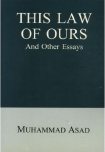
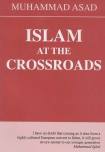
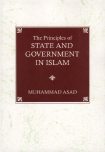
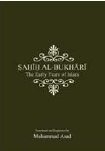
During World War II imprisoned him in a camp for enemy aliens (because of his Austrian nationality) while his father was interned by the Nazis because he was Jewish. After the War he fervently threw his all behind the demand for Pakistan. Upon the creation of Pakistan, he saw himself very much a ‘Pakistani’ as did those he worked with (reportedly even took to wearing the achkan). In 1947 he became the director of the Department of Islamic Reconstruction in West Pakistan and worked on a treatise with ideas for the Constitution of Pakistan. Many of these ideas (which were mostly related to creating a multi-party parliamentary democracy) were reproduced in his later books but he was not very successful in getting them implemented.
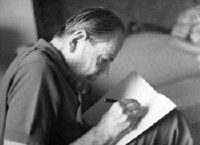 In 1949 Asad joined the Pakistan Foreign Ministry as head of the Middle East Division and eventually in 1952 came to New York as Pakistan’s representative to the United Nations. Here he met the woman who would become the last of his wifes (Pola Hamida). Whether it was the fact that he married her and divorced his earlier wife or the messiness of Pakistani politics, it was in this period that he fell out with the powers in Pakistan and resigned from the Foreign Ministry. He decided to stay on in New York to write Road to Mecca, which became a major success. He never really returned to Pakistan (although, supposedly, Gen. Zia ul Haq tried to get him back) and died in Europe in 1992.
In 1949 Asad joined the Pakistan Foreign Ministry as head of the Middle East Division and eventually in 1952 came to New York as Pakistan’s representative to the United Nations. Here he met the woman who would become the last of his wifes (Pola Hamida). Whether it was the fact that he married her and divorced his earlier wife or the messiness of Pakistani politics, it was in this period that he fell out with the powers in Pakistan and resigned from the Foreign Ministry. He decided to stay on in New York to write Road to Mecca, which became a major success. He never really returned to Pakistan (although, supposedly, Gen. Zia ul Haq tried to get him back) and died in Europe in 1992.
It was his estrangement with the Pakistan government that pushed him back into writing and produced two amazing works – Road to Mecca and The Message of the Quran. However, here once again is a story of one who wished to give his all to Pakistan and we did not let him.

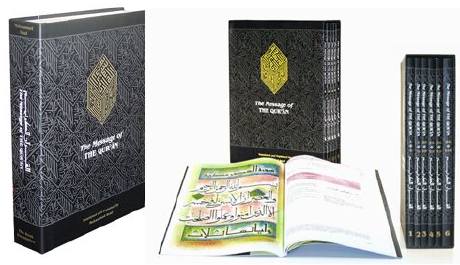
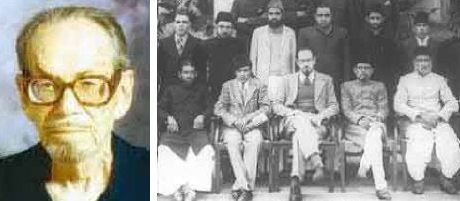


















































I would have been a different and a better man had I read this book in the 60’s. I need no help in understanding it. It answers my questions and puts my mind to ease
Since returning from performing the lesser pilgrimage (‘Umrah), I bought “This Law of Ours …” whose Foreword was written by Pola Hamidah, who admitted that she had collaborated with her husband, Muhammad Asad, — whose religion and points of view she shared with, both intellectually and emotionally — since the time he was putting together pieces for his account of the 23 days he and his companion, Zayd, spent in the summer of 1932, on “The Road to Mecca”. From reading Pola Hamidah’s mid-1980’s observation of ‘the timeliness and timelessness of Muhammad Asad’s thoughts and predictions, as well as their great consistency’ in the Foreword she wrote in “This Law of Ours …”, perhaps it is not a far-fetched suggestion too for netters — on all continents, not leaving out Tuamotu (a group of islands, furthest from Mecca) — to keep the discussion “… of the principles which ought to underlie the constitution of an Islamic state …” “… alive.” here, on the World Wide Web. (Muhammad Asad, The Principles of STATE AND GOVERNMENT IN ISLAM, pg. xi)
[An early Zu l-Hijjah 1430H posting]
I found this video clip of Dr Asad’s interview on you tube.
http://tinyurl.com/yfpb2dy
I liked explanation of “Jinn” in his English commentry of Holy Quran as very informative.
Salam.
I read Muhammad Asad’s account of the 23 days he and his companion, Zaid, spent on “The Road to Mecca”, after returning home from Jeddah, with a stop-over at Karachi. I borrowed the copy from my sister-in-law. As the office of IBT Kuala Lumpur, the publisher of books authored by A l-Marhum Muhammad Asad, is nearby, I decided to drop in to buy one for myself. Earlier — during the second week of the month of Ramadan –, at a bookstore close to a Ramadan bazaar, in Petaling Jaya, I laid my hands on This Law of Ours …
Having read through Muhammad Asad’s account of his joureny in late 1920’s in Hijaz, and the essay written by him on Islamic constitution-making, in This Law of Ours …, I am of the opinion that Muhammad Asad stood firm in his view — regarding The Shari’ah as the Ideology of the Ummah, in particular — when he found “…, an answer to this tormenting question presented itself to me: …” (This Law of Ours …p. 2) was in general agreement with the passages from the Introduction to A l-Muhalla (Cairo, 1347H), Ibn Hazm of Cordoba’s work, that he — Muhammad Asad — came across. Thus he found himself in such an enlightened company.
During the last 48 hours or so, I searched on the Internet for URLs of webpages on Muhammad Asad. I came across one on the naming of a plaza in Vienna, in honour of Muhammad Asad. (His son — Talal Asad — from an earlier marriage to an Arab lady, was present at the ceremony.) Another URL gives the webpages of The Jewish Discovery of Islam, taken from Studies in honour of Bernard Lewis, edited by one Martin Kramer, and published — if I’m not mistaken — by The Moshe Dayan Center for Middle Eastern and African Studies, Tel Aviv. It was — as pointed out by the writer — an attempt “… to draw a very general sketch of (Muhammad) Asad’s life, …” since “… there is no biography of (Muhammad) Asad, …”, “… and to place some emphasis upon the Jewish dimension ofMuhammad Asad.”
One cannot but asks whether The Message of The Quran, his magnum opus, is dedicated to oneself, for Muhammad Asad chose “For people who think”as his target group.
To all those going on the Pilgrimage “LabbaiKA L-lahumma labbaik …”
Wa s-Salam.